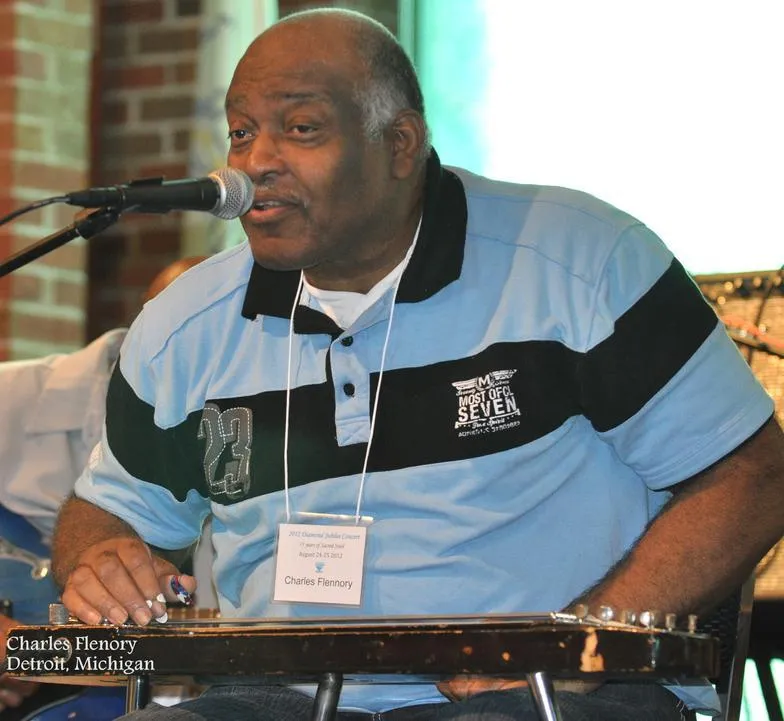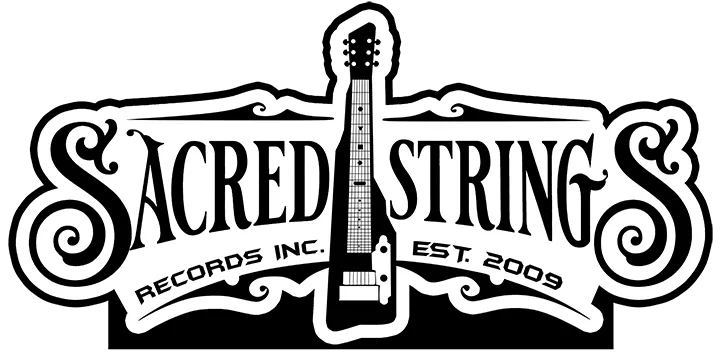Charles Edward Flenory
(1948- 2017)
Charles E. Flenory: Sacred Steel Innovator and Gospel Music Visionary
Early Life and Musical Foundations
Born on March 18, 1948, in Cleveland, Ohio, to Bishop George and Mary Flenory, Charles E. Flenory exhibited musical talent from an early age. By five years old, he had mastered the lead guitar, and by thirteen, he transitioned to the steel guitar, laying the foundation for a distinguished career in sacred steel and gospel music.
Influence and Contributions to Sacred Steel
Throughout his life, Flenory remained deeply connected to the House of God Church, first in Cleveland and later in Detroit, Michigan, where he performed alongside the esteemed Bishop Ronnie P. Hall for over three decades. His artistry was shaped by the influences of Hall of Fame members Calvin Cooke and Ronnie Hall, and his tenure as an assembly musician at the House of God in Nashville, Tennessee, further solidified his standing in the sacred steel community.
Songwriting, Sound Engineering, and Studio Innovation Beyond his role as a performer, Flenory made significant contributions as a songwriter and arranger, most notably penning the Campbell Brothers’ hit song Jump for Joy and contributing guitar work to several tracks. Inspired by Hall of Fame member Felton W. Williams Jr., he pursued sound engineering, earning a degree from the Recording Institute of Detroit in 1977.
Recording Institute of Detroit
His expertise in studio production led him to establish Gospel Sound, where he oversaw the design and construction of the Platinum Sound Studios facilities in Atlanta, Georgia—an achievement that earned him a Billboard Platinum Award.
Recognitions and Lasting Legacy
Flenory’s impact on gospel and sacred steel music was formally recognized in 2004 with the Special Motown Achievement Award, presented by Bob Dennis. His induction into the Sacred Steel Hall of Fame in 2014 further cemented his legacy as a pioneering force in the genre. His contributions continue to shape the sacred steel tradition, inspiring future generations of musicians and preserving its rich musical heritage.

FAQS
What is Sacred Steel?
Sacred Steel is an African-American gospel tradition that features the steel guitar in religious services. It originated in Pentecostal churches in the 1930s
Where did Sacred Steel originate?
It developed in the Church of the Living God, particularly in the Keith and Jewell Dominions.
How did Sacred Steel gain popularity?
Sacred Steel gained wider recognition through performances by artists like Robert Randolph, Calvin Cooke, Aubrey Ghent and the Campbell Brothers, who brought the genre to international fame.
God Bless Sacred Steel!

